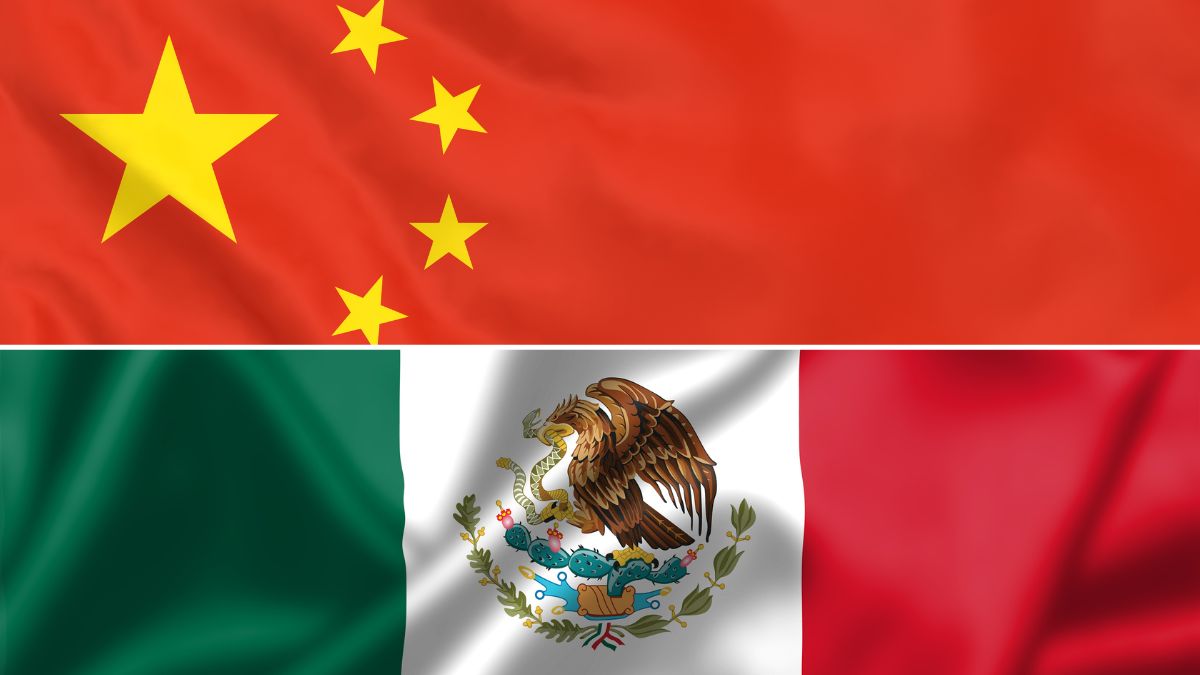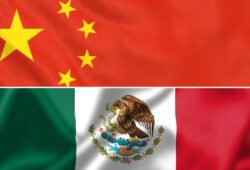
The Mexican government’s proposal to impose tariffs of up to 50% on light vehicles and other products from China and countries with which there is no free trade agreement opened a new front in the trade relationship between the two countries. The Chinese government reacted immediately with a message of firm opposition, warning that the measure would negatively affect bilateral cooperation and could escalate tensions in a global context already marked by trade disputes.
READ ALSO. What did Matthew Dowd say about the Charlie Kirk shooting? The MSNBC analyst was fired
What did China say about the new tariffs proposed by Mexico?
The spokesperson of the Chinese Ministry of Foreign Affairs, Lin Jian, stated at a press conference: “(China) firmly opposes any coercion by others to impose restrictions on China under various pretexts, which undermines China’s legitimate rights and interests.”
READ ALSO. Sam’s Club vs. Costco in China: How membership clubs compete in the Asian giant’s market
The official added that his country has always advocated “for inclusive and beneficial economic globalization” and hopes that Mexico will join that path. He also reiterated that China “opposes all forms of unilateralism, protectionism, and discriminatory and exclusionary measures.”
ALSO READ. Mexico follows Trump’s example and will impose tariffs: these are the affected products
Later, the Ministry of Commerce of the Asian country stated regarding the China-Mexico relationship: “we do not wish bilateral cooperation to be negatively affected. (… China) will take the necessary measures in light of the current situation to resolutely safeguard its legitimate rights and interests.”
What is Mexico proposing with the new tariffs affecting Chinese products?
The Ministry of Economy presented in September 2025 a bill that contemplates tariffs ranging from 15% to 50% on 1,463 tariff items corresponding to 17 strategic sectors. Among the most notable goods are light vehicles, which would increase from a range of 15-20% to 50%, and auto parts, with an increase of between 10% and 50% from the current level of 0-35%.
The Mexican government argues that the measure seeks to protect the national industry, reduce the trade deficit, and safeguard more than 300,000 jobs at risk in sectors such as automotive, textile, footwear, and appliances.
How does the 50% tariff on Chinese cars affect the automotive industry?
The hardest hit would fall on the automotive sector. In recent years, China has become the main external supplier of vehicles to Mexico. In 2024, sales of Chinese cars reached 5.332 billion dollars, more than double that of 2022, allowing them to occupy 30% of the light vehicle market in Mexico.
In contrast, Mexican exports to China amounted to only 262 million dollars, the lowest figure since 2010. The result was a historic deficit of 5.068 billion dollars in bilateral automobile trade.
What other products will be affected by the new taxes?
In addition to automobiles, the project includes tariff increases in sectors such as:
- Textiles and clothing: up to 50%.
- Appliances and furniture: 35%.
- Toys: 35%.
- Glass, aluminum, paper, and cardboard: between 15% and 50%.
The decree will apply only to countries without a trade agreement with Mexico, which in addition to China includes South Korea, India, Indonesia, Russia, Thailand, and Turkey.
US and Trump vs. China, the trade war that pressures Mexico
The Chinese reaction is not surprising, given that the country has been facing a trade and technology war with the United States for years, initiated under Donald Trump’s administration and prolonged in different phases afterward.
Spokesperson Lin Jian warned that at a time when “the tariff abuses of the United States have provoked widespread opposition worldwide,” any unilateral measure by Mexico, even within the WTO framework, could be interpreted as “an act of appeasement and compromise in the face of unilateral intimidation.”
This places Mexico in a complex situation: it seeks to shield its industry, but at the same time needs to balance its relations with its main trading partners and with a key player like China.










